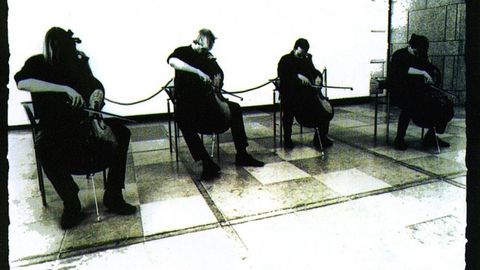Before they began writing their own material and collaborating with famous friends such as Dave Lombardo and Till Lindemann, Finnish cello collective Apocalyptica made their reputation with this groundbreaking debut collection of Metallica songs rearranged into string-quartet instrumentals.
Twenty years later, with symphonic metal now an established genre, the initial sheen of novelty gimmick has faded to reveal an album of mostly sturdy and imaginative reworkings. Enter Sandman sweeps along on strident col legno strokes, teasing out new textures and countermelodies from the original, while The Unforgiven and Wherever I May Roam relocate Metallica’s doom-drenched spaghetti western fantasies to the bohemian salons of central Europe.
Never released before, the three bonus tracks are worthy inclusions. Battery emerges in a fog of ghostly twangs and reverb before galvanising into what sounds like crunchy guitar riffs, but could be a furiously strummed cello. More torrid turbo-metal flurries spice up Seek & Destroy, but the best of the trio is a luxuriant reboot of Nothing Else Matters, its rhythmic spine a dramatic plucked-string waltz that recalls the James Brown classic It’s A Man’s Man’s Man’s World. Stupendous stuff.
It makes total sense that Metallica themselves ended up working with these acoustic acolytes, a musical marriage that enhances both and diminishes neither.
Apocalyptica announce 20th anniversary tour for Plays Metallica By Four Cellos


